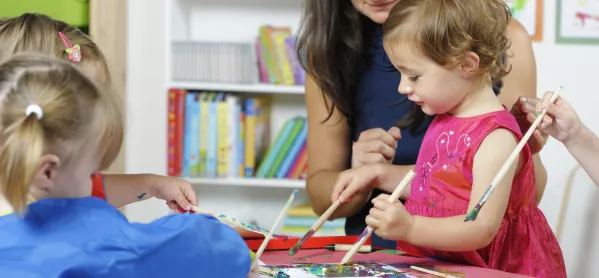Children are increasingly likely to arrive at primary school unable to speak effectively or use the toilet independently, a new survey has found.
More than 86 per cent of heads say reception children are less likely to be ready to take part in classroom activities than five years ago, according to the School Ready? survey of school leaders by the NAHT headteachers’ union and the Family and Childcare Trust, a charity dealing with family issues.
And almost a quarter of heads said that more than half their reception class were “not ready” for school, according to the survey of 780 school leaders.
Speech and communication skills - such as children finding it difficult to express themselves and describe what they need - were the most common difficulties, with 97 per cent of headteachers saying they were an issue.
Personal, social and emotional development - or being able to get along with classmates - was cited as a problem by 94 per cent of heads and physical development, including being toilet trained, was a concern for 78 per cent.
“We want to see extra money for education, including early education before children start school and renewed investment in critical services for families,” Paul Whiteman, NAHT general secretary said. “Without proper investment, the youngest and most vulnerable in our society will be starting off behind, with uncertain chances of catching up.”
The most common reasons highlighted by school leaders for children not being school ready were:
- Failure to identify and support additional needs early enough (67 per cent)
- Pressure on parents and family life (66 per cent)
- Reduction in local services to support families (63 per cent)
- Reduction in local health services to support families (57 per cent)
Almost 9 in 10 (88 per cent) said inadequate school funding was a barrier to improving school readiness.
Ellen Broome, chief executive of the Family and Childcare Trust, said: “Four-fifths of school leaders said that children who had no previous early education demonstrated the most challenging issues. There is strong evidence that early education can help to boost children’s outcomes and narrows the gap between disadvantaged children and their peers - but only if it is high quality. The government must make sure that every child can access high-quality early education and that parents can get the right support to help them to give their children the best start in life.”
Since September 2011, all children have had the option to start school in September after they turn four, rather than the term in which they turn five - which had previously been the practice in many local authorities.
A government spokesperson said: “High quality early education is vital to ensure every child is able to achieve their full potential. That is why we are investing a record £6 billion every year by 2020 - more than ever before - in childcare and early education.
“The proportion of childcare providers rated good or outstanding remains at a historic high and it is our ambition to raise the status of the profession and spread quality around the country so that all children will get the best start to their education”
Want to keep up with the latest education news and opinion? Follow Tes on Twitter and like Tes on Facebook




